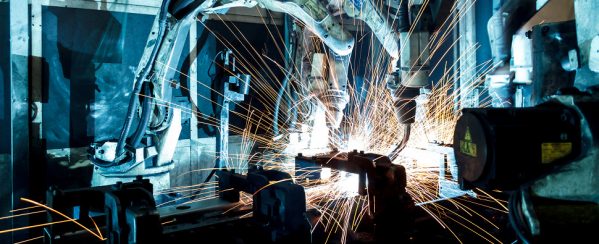Technology That Is Changing The Manufacturing Industry
Technology That Is Changing The Manufacturing Industry
At the core of any healthy economy is manufacturing. However, competing in an increasingly globalized market as a manufacturer can be quite difficult indeed. One way to get an edge and maintain your market share is through the adoption of new technology.
As global automation continues to be a huge trend in order fulfillment, not adopting new tech into your production processes can mean getting wiped out by savvier competition. In addition, you should also consider your product packaging. You may visit sites like https://www.epicpackaging.co/epic-retail if you want to get innovative product packaging. You may also buy turntable wrapping equipment, which can help your items arrive in perfect condition as opposed to getting damaged or ruined. With that in mind, here is an overview of some of the new technology that is currently transforming manufacturing. You can see here more information on how do co2 laser cutters work!
3D Printing
By now, most people have heard of 3D printing through viral news stories. While the idea still sounds somewhat gimmicky, the technology certainly has almost limitless applications. This is especially the case for manufacturing. While the idea of everyone owning a 3D printer would make it seem like this tech would make manufacturing industries obsolete in the future, that is certainly not the case. The tech is still quite expensive, and it is very doubtful that anyone will have the space to store industrial sized 3D printers in their homes.
As for manufacturing, it will give manufacturers the ability to customize products to customer specifications on a scale never seen before. It will also allow industries to make changes in the manufacturing of product lines using new services like like Thrive offers flock printing. If a new design proves more marketable according to research, all that needs to be changed is the computer file that tells the machine what design to fabricate out of plastic or other printable building materials. Costs for manufacturing will be slashed across the board.
Predictive Analytics
The rapid increase in computing power and cloud storage capabilities is also changing how manufacturers operate. This is due to the harnessing of the power of big data. Thanks to improved data storage capabilities, companies are able to amass huge amounts of data regarding products, customers, marketing and more that dwarf anything found on company servers in previous decades. This data can be leveraged into a strategic advantage in part thanks to predictive analytics.
Predictive analytics involves the analyzing of big data to make predictions and forecasts for future demand for products, trends in customer behavior and much more. Thanks to predictive analytics, manufactures will know when to produce products to maximize profits and how to get aboard big trends as they are just beginning to develop. The same technology can even be deployed to predict when parts in factory machinery should be replaced. It can increase the profit potential for a manufacturer several times over.
Robotics
Robots have been part of the industrial landscape since the 60’s when General Motor first integrated them into the company’s auto manufacturing plants. While the idea of robots becoming ingrained in the manufacturing process is not anything new, the tech is improving and evolving in ways that are having a big impact on manufacturing. Robotics and advanced machinery are also being used for laser cutting and metal fabrication in different manufacturing facilities.
Amazon.com, for example, is able to use robots to prepare various products for shipment and transport them to different areas of a shipping warehouse by wheel as soon as a customer clicks to purchase an item on the website. China has in recent years made a huge investment in creating and deploying robots in various industries to help fuel their rapid expansion as a manufacturing powerhouse. Learn more about this topic by checking this new article about the PCBA contract manufacturer.
While the increasing use of robots may seem like a threat to the average worker’s livelihood, this isn’t necessarily the case in many industries. Robots can be designed to perform precision work in minute detail. However, they will never have the adaptability and complex decision making skills of the human mind. As a result, something known as “cobotics” is becoming a bigger trend in manufacturing. Instead of replacing human labor, robots implemented under this philosophy are designed to complement the work of factory employees as opposed to replacing them entirely. They are used as tools to help the worker finish a sand casting job, for example, much faster and more efficiently than could be done by hand.









